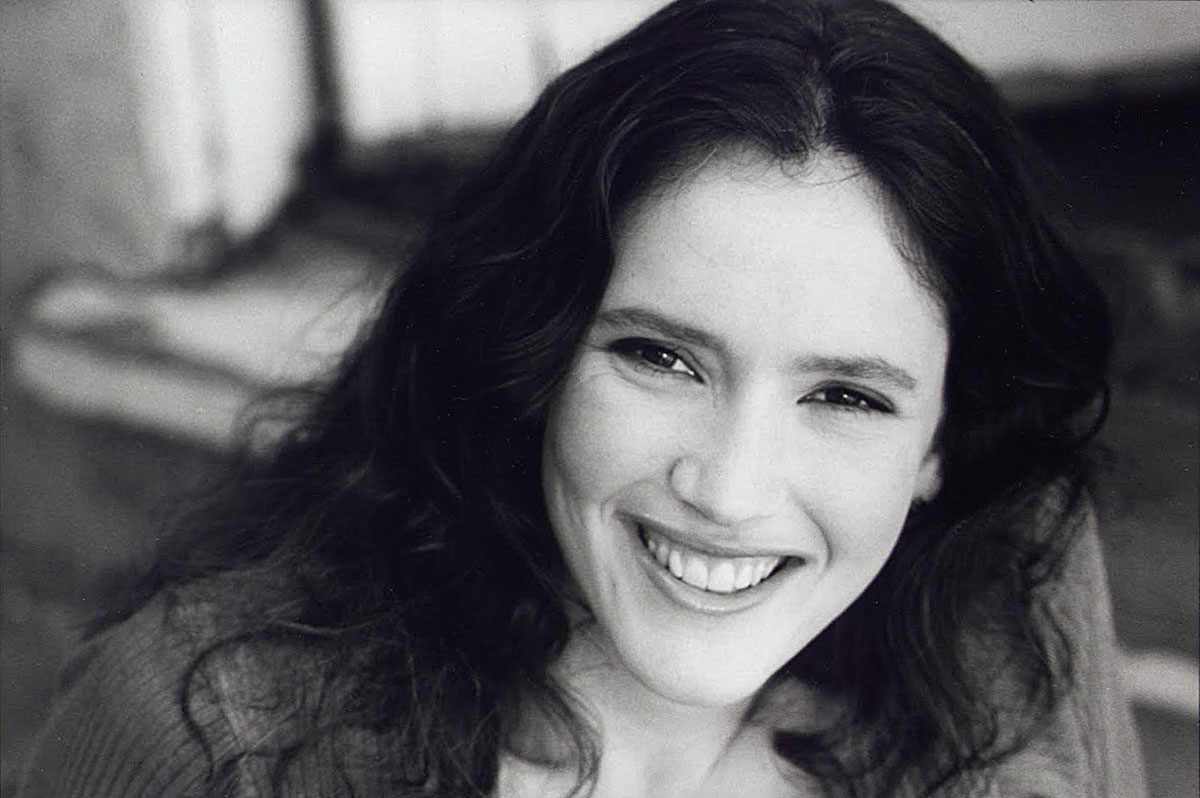Tanya Shaffer is a San Francisco-based writer and actress. Her most recent solo show, “Let My Enemy Live Long!” based on her travels in West Africa, enjoyed an extended run in the San Francisco area and was awarded a 1999 Bay Area Theatre Critics’ Circle Award for Solo Performance. The show also ran at ACT Theatre in Seattle in June-July 2001. Her previous solo show “Miss America’s Daughters” and her play “Brigadista,” based on her experiences as an observer of the 1990 Nicaraguan elections, played in over forty cities nationwide. She has also written for the Tony-Award-winning San Francisco Mime Troupe, for Ad Infinitum films, and for the magazines “Enquiring Mind” and “Callboard.” Tanya was a frequent contributor to the now-extinct travel section of Salon.com. Her travel stories been anthologized in the books “A Woman’s Passion for Travel,” “Wanderlust: Real Life Tales of Adventure and Romance,” and the upcoming “Chicken Soup for the Travelers’ Soul.” As an actress she has appeared with the California Shakespeare Festival, the Old Globe Theatre, TheatreWorks, the Willows Theatre Company, the Pacific Repertory Theatre, and others. She has just completed her first book, “Girl in the World: Memoirs of an Escapist.”
How did you get started traveling?
Well, my parents are both travelers, so I definitely got a taste of it at an early age. I lived in Europe for two extended periods as a child — once in Munich when I was one to two and a half, and again in Berlin when I was eleven. The second time I drove all over East and West Germany with my Dad while he did research for a book he was writing. I also took excursions to meet my mother in Norway, Sweden, and Iceland. My first real solo travel happened when I was nineteen. A college friend and I had made plans to participate in a voluntary work project in (then) Czechoslovakia. Two weeks before it was time to leave, she bailed, pleading poverty. I was scared to go alone, but determined not to let her wimpiness spoil my summer. That was when I discovered I loved traveling alone. I spent a few weeks wandering through Europe on the way to and from the work project, and then I spent a semester in London studying theatre. Those few weeks of solo wanderings hooked me. I was amazed at how many more people I met by virtue of the fact that I was a lone traveler. Traveling with someone is great, but you definitely meet more people when you’re on your own. Two people together form kind of a closed unit. A solo traveler is completely open to the world.
How did you get started writing?
I started keeping a daily journal when I was nine, around the same time that I began my first (unfinished) novel. I’ve written more and less at different times in my life, but I consider it integral to my way of processing what the world flings at me. Whenever I start writing again after going a few weeks or months without it, I feel like I’m coming home.
What do you consider your first “break” as a travel writer?
I started writing my African travel stories about seven years ago. I worked on the early ones in writing workshops taught by Jonathan Lethem, who was an invaluable teacher and critic. In those classes I met my friend Carol Lloyd, who was running the writing school out of her living room. When Carol later became an editor at Salon, she asked me if she could pass on some of my stories to Don George, the travel editor. At that point they’d been sitting around for about four years. I hadn’t sent them out because I thought they needed some rewrites, and I’d gotten sidetracked by other projects. Carol gave one of the stories to Don, and that was the beginning of a beautiful relationship!
As a traveler and fact/story-gatherer, what is your biggest challenge on the road?
I think my biggest struggles involve my own shyness. I get weird bouts of timidity where I’m afraid to make a cold call, or where I want to approach someone and ask something, but I can’t make myself do it. This is a less than ideal personality trait in a journalist.
What is your biggest challenge in the writing process?
Self-discipline and dealing with unstructured time. Once I’m sitting at the computer working I’m very happy, but for some inexplicable reason I often have an incredibly hard time getting myself there. (This isn’t the case, I should note, about journal-writing — I could sit and freewrite all day perfectly happily, which is exactly what I do when I’m travelling. It’s only when it comes to shaping and polishing a piece that I meet with a lot of inner resistance to engaging with the process.) I usually go out of my house to work because I get too distracted by the ringing of the phone and the presence of all my disorderly possessions. It can take several hours of putter and delay before I finally get my butt (and my laptop) to the neighborhood cafe, where I find it easier to concentrate amidst the semi-anonymous buzz of other-people’s conversations.
What is your biggest challenge from a business standpoint? Editors? Finanaces? Promotion?
Well, since I make my living as a freelance writer and stage actress, to say that finances are a problem is almost a truism. But actually, I think the biggest challenge, again, is overcoming my timidity when it comes to cold-calling and otherwise approaching people I haven’t met before. This timidity has caused me to drag my feet endlessly on projects I should have moved forward with long ago. I wish I could build a robot to do those things for me.
Do you do other work to make ends meet? If so, what kind of work?
Well, as I said above, I act on the stage. (And I know this doesn’t seem to go with the “shyness” trait, but, believe it or not, the ability to make cold calls with ease does not seem to be inherently tied to the ability to get up in front of strangers and bare your soul.) In addition to hiring myself out as an actor in everything from Shakespeare to musicals, I also do solo performance. My latest solo performance, based on my African travels, has become my bread and butter over the last couple of years. It’s actually been a very fulfilling way to bring together the things I love most, namely travel, writing, and performance. In some sense I even view it as a kind of political activism, in that I’m able to explore some issues that are important to me in the realm of race and class dynamics. Other writing I’ve done includes video scripts for educational, industrial, and promotional videos, other stage plays, and a little bit of other journalistic type writing.
What travel authors or books might you recommend and/or have influenced you?
I really love Mark Salzman’s “Iron and Silk.” His delicate portrayals of the people he meets — the way he evokes so much through beautiful, simple stories — embody the kind of writing I aspire to. I also really love my friend Jeff Greenwald‘s “Shopping for Buddhas.” He manages to convey an extraordinary amount of cultural, political, and even historical information without ever making you feel like you’re being lectured to. The persona he creates for himself is hilarious.
What advice and/or warnings would you give to someone who is considering going into travel writing?
I’m far from an authority on this subject, but I guess I’d say the same thing I say when people ask me about acting. Whether or not it’s a good career for you really depends on what you value. If you value financial and job security highly, it may not be the way to go. But if you value variety, you have a passion for the unexpected, you’re not too keen on following other people’s authority, and you’re reasonably self-motivated, you might want to give it a try. The work itself is amazing.
What is the biggest reward of life as a travel writer?
There are so many rewards. Getting to travel. Getting to write. Getting comments, e-mails, and letters from people who really connect to the work. Lots of blessings, really.
How do you go about turning your travel stories into performance?
When I returned from Africa I ran into a director friend named Amy Mueller. When I told her I was working on stories about my trip, she immediately said that if I was interested in developing any of those stories into a performance I should contact her. About four years later, I brought her a stack of fifteen stories, thinking I would write a show incorporating five or six of them. After much discussion, we decided to start with a story about my boat trip up the Niger River to Timbuktu, as this was the longest and most actively adventurous of the bunch. Beginning with the existing text, we spent more than two years cutting and shaping it to transform it from a literary narrative into a dramatic piece. In the course of that time we discovered that this story alone, with small excerpts from a couple of others, was enough for an entire evening. The task, then, was to make it theatrical. Anything that could be shown rather than narrated we turned into physical action. Since we’d decided it would be a solo show, with me playing all the parts, we worked together developing physical and vocal mannerisms that made each character immediately distinguishable. Some scenes were particularly challenging to dramatize, particularly a boat accident and a game of musical chairs with multiple players. We wanted to keep the production technically simple, for both aesthetic and budgetary reasons, so I had to create all of these different scenarios with only my body, voice, and a wooden bench and box we used as props. We then showed it, at different stages, to a workshop audience and solicited feedback. We didn’t let the facts of what actually happened bind us, but always looked for the most dramatic ways to illuminate what we felt were the underlying truths of the story.





